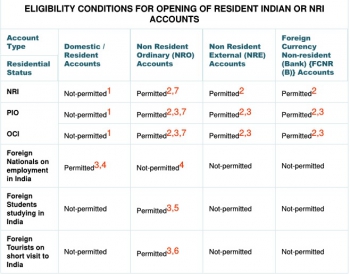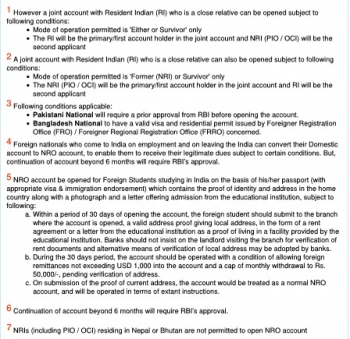05/29/2017
How to open a bank account in India

There is a plethora of banks in India.
Private local (but good) banks:
- HDFC - I tested
- Axis - I tested
- ICICI
International banks:
- Citibank - I tested
- HSBC
Principle:
If you travel in India, you can open a NRO (Non-Resident Ordinary) account.
You can deposit money earned abroad in India. The interest earned on this account are taxable in India. You can use this account to make payments in India.
You have to upload documents online (it takes less than an hour) and then it takes 3-4 days for the account to be activated.
Documents for an NRO tourist account:
- Passport
- Tourist visa
- Proof of residence in your country of origin (the Passport is apparently accepted as such, so is the driver license, or a utility bill (electricity or phone) less than 2 months old, a bank statement less than 3 months old)
- PAN Card, which you probably won’t have and in this case the Form 60 (here)
- FATCA / CRS statement (downloadable from the site of the selected bank)
- The CKYC Annexure (downloadable from the site of the selected bank)
- The Bank form
- 2 photos
- All copies self-certified
Transfer funds from your home country to an account in India:
It’s easy.
- You can do this via your home Bank.
- Or WesternUnion.
- Or a Bank in India (ICICI has for example a Money2India module).
- Or PayPal.
- A site of transfer and Moneytis can give you a comparison of all the sites
Repatriate funds from an NRO account to your home country (3):
You can repatriate what’s left on your account within the limit of 1 million dollars a year. Be aware, the account has to be active for a maximum period of 6 months and you must not have put any money earned in India on it (except for the interests) in order to repatriate the balance funds. If you are a tourist and you stay more than 6 months, you will have to ask special permission from the RBI (Reserve Bank of India).
Principle:
If you are coming to study in India, you can open a NRO (Non-Resident Ordinary) student account.
You can deposit money earned in your home country or in India. The interests earned on this account are taxable in India. You can use this account to make payments in India.
You have to upload documents online (it takes less than an hour) and then it takes 3-4 days for the account to be activated.
Rule:
Within 30 days of opening the account, you must deposit at the Bank your address proof in India. Pending verification of address, you can deposit maximum $ 1,000 and withdraw maximum Rs 50,000.
Documents for an NRO account:
- Passport
- Student visa (or tourist visa with admission letter from the Institute)
- Proof of residence in your country of origin (the Passport is apparently accepted as such, so is the driver license, or a utility bill (electricity or phone) less than 2 months old, a bank statement less than 3 months old)
- PAN Card, which you probably won’t have and in this case the Form 60 (here)
- FATCA / CRS statement (downloadable from the site of the selected bank)
- The CKYC Annexure (downloadable from the site of the selected bank)
- The Bank form
- 2 photos
- All copies self-certified
- All signed copies
Transfer funds from the France (or abroad) to an account in India:
It’s easy.
- You can do this via your home Bank.
- Or WesternUnion.
- Or a Bank in India (ICICI has for example a Money2India module).
- Or PayPal.
- A site of transfer and Moneytis can give you a comparison of all the sites
Repatriate funds from an NRO account to your home country (3):
You can repatriate what's left on your account within the limit of 1 million dollars a year. The RBI (Reserve Bank of India) doesn’t mention any maximum duration for the account to be active, but it is reasonable to assume that it is related to the duration of the visa.
 EXPATRIATES working in India (employment visa)
EXPATRIATES working in India (employment visa)
It also works for the OCI and non-working foreign residents, I assume.
You can open a Domestic account / Resident, also called a ‘Resident Individuals’ account (which may be a salary account or own account (normal current/saving account)).
Documents to open an account a Resident Individual:
- Passport
- Employment visa (they might also ask for the contract0
- Proof of residency (copy of the FRRO or OCI booklet)
- Proof of address in India
- PAN Card or the Form 60 (here) if you don’t have a PAN Card (though you might apply as you will need it)
- The Bank form
- 2 photos
- All copies self-certified
NB: The bank usually requires you to send the scan of the renewed visa every year to keep the account active. After 12 months without any transaction, the account is considered as inactive – interests continue to run but you can no longer make any transaction. It is however possible to reactivate an inactive account.
Transfer funds from your home country to an account in India:
A priori you won’t need to do it since you will be working. Otherwise the methods given above for tourists and students work!
Repatriate funds from an Indian account to your home account (3):
To repatriate funds, please note that it is highly regulated and that online transfer solutions may not work.
So you may have to go to the Bank and fill out the ‘foreign remittance’ form. You will have to have in hand the details of the account on which you want to transfer the funds (IBAN and SWIFT). You must also provide the evidence of salary (because you cannot transfer more than your net pay after all the deductions and taxes): salary slips signed (covering the amount you want to repatriate, e.g. 3 months if you want to transfer the equivalent of 3 months of net salary), or the Form 16, or a certificate from the employer.
You can also use Western Union or other agents of the same type, but I have never tried.
To sum-up what kind of non-resident accounts can be opened in India:
08:00 Posted in Expatriation (in India and in other countries), Travelling (in India!) | Permalink | Comments (0) | Tags: india, bank account, foreigner, student, tourist, expatriate, funds, repatriation, money transfer | ![]() Facebook | |
Facebook | |




















The comments are closed.